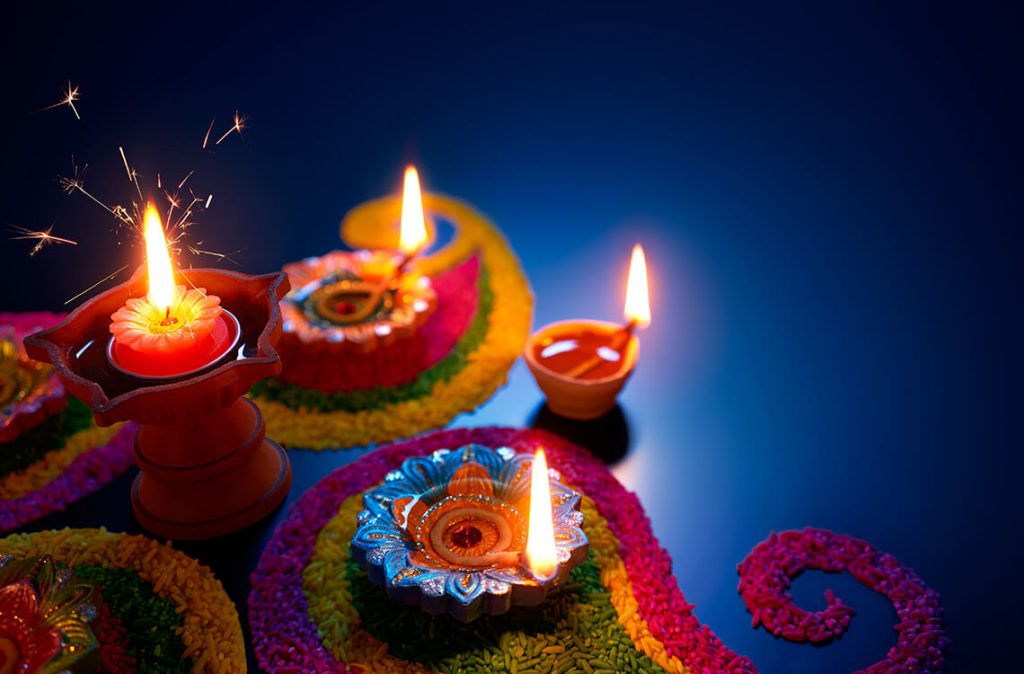Deepavali, also known as Diwali, is a festival celebrated with great passion and enthusiasm by millions of people across the world among the Indian diaspora, including in Malaysia.
Often referred to as the ‘Festival of Lights’, it carries a rich cultural and spiritual significance.
Here’s what you need to know about this important celebration and its origin, which dates back thousands of years into the past.
The Triumph of Good over Evil
At the heart of the Diwali celebration lies the age-old story of the victory of good over evil.
The most well-known narrative associated with Diwali is the return of Lord Rama, an incarnation of Lord Vishnu, to the city of Ayodhya after his triumphant battle against the demon king Ravana.
According to the epic Ramayana, Lord Rama, along with his wife Sita and devoted brother Lakshmana, was exiled from his kingdom for 14 years.
During their exile, Sita was abducted by Ravana, the demon king of Lanka.
With the aid of the Monkey God Hanuman and an army of monkeys, Lord Rama rescued Sita and defeated Ravana on the day of Dussehra.
His joyous return to Ayodhya, marked by the lighting of lamps and fireworks, symbolises the victory of light over darkness.
Cultural and Historical Significance
Diwali transcends religious boundaries.
It is celebrated not only by Hindus but also by Jains, Sikhs and Buddhists.
In Sikhism, Diwali commemorates the release of Guru Hargobind Ji from imprisonment.
For Jains, it marks the nirvana of Lord Mahavira, and for Buddhists, it is associated with Emperor Ashoka’s conversion to Buddhism.
The Worship of the Goddess Lakshmi
In several parts of India, Diwali is also closely associated with the worship of Goddess Lakshmi, the deity of wealth and prosperity.
People prepare for her arrival by thoroughly cleaning their homes, decorating with marigolds, constructing colourful rangoli designs, and lighting lamps.
The belief is that Goddess Lakshmi visits homes that are clean, well-lit and welcoming.
The ritual is known as Lakshmi Pooja, observed on Diwali at sunset.
Prayers are done before an altar and statue of the goddess, and lamps are lit to invite her to bless their homes with peace, wealth and prosperity.
Traditions and Celebrations
Lights
Fire is a main staple of Diwali celebrations, involving the lighting of many clay oil lamps (called diyas) to bathe the home in warm light.
But other forms of light, both natural and man-made, are welcome to join.
This may include fairylights, candles, fireworks and sparklers.
Colour
Probably the most iconic tradition is the creation of intricate rangoli designs (known as kolam in Tamil).
This artform dates back almost 5000 years and used to be a daily or regular practice but has now been reserved only for the most important Hindu festivals and celebrations.
Loosely translated to ‘colours’ rangoli symbolise wealth, joy and prosperity.
It is often also created as a form of thanksgiving to the gods.
Drawing a rangoli at the entrance of a home will protect the house from evil spirits.
While most rangoli are temporary, created from dyed rice or rice powder, brick powder, coloured sand or chalk powder, some houses have rangoli drawn permanently on their floors.
Food
Diwali celebrations are not complete without food.
And this includes all sorts of seasonal dishes and delicacies that you can only find at this time of year.
The menu consists of both savoury and sweet items.
Some popular Diwali items include but are not limited to,
- Kadhi: a spiced Indian yoghurt-based dish thickened with chickpea flour
- Bachka: a black chickpea fritter
- Dalpuri: a flatbread
- Aloo gobhi: a dish made with potatoes, cauliflower, spices and herbs
- Gud wali kheer: a sweet rice pudding
And a variety of sweet deserts and cookies such as kalakand, rasgulla, rasmalai, chum chum and sandesh.
Celebrating Diwali
Diwali, the Festival of Lights, is a celebration of hope, goodness, and the victory of light over darkness.
It is a time of colourful and joyous celebrations.
People light oil lamps and candles, burst fireworks, prepare traditional sweets and snacks, don new clothes, exchange gifts, and visit friends and family.
The festival is a symbol of unity, as it brings people from various backgrounds together to celebrate the triumph of light and good fortune.
It not only holds immense religious and cultural significance but also serves as a reminder of the timeless values of love, compassion and unity.
As the lamps and candles are lit and fireworks light up the night sky, Diwali continues to inspire and bring joy to people’s lives around the world.
Happy Deepavali with love from Motherhood!
Disclaimer: The information provided in this article is for informational purposes only and should not be considered as medical advice from Motherhood. For any health-related concerns, it is advisable to consult with a qualified healthcare professional or medical practitioner.
For more insightful stories and fun recipes, stay tuned to Motherhood Story!
